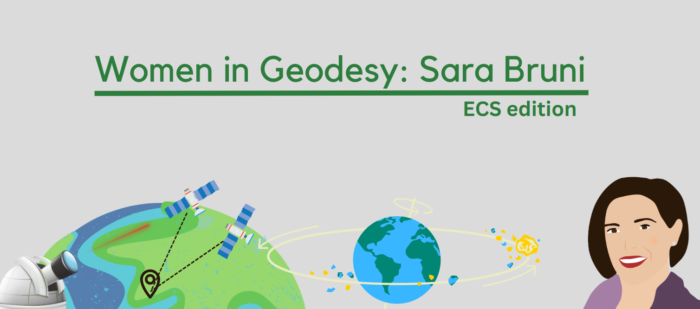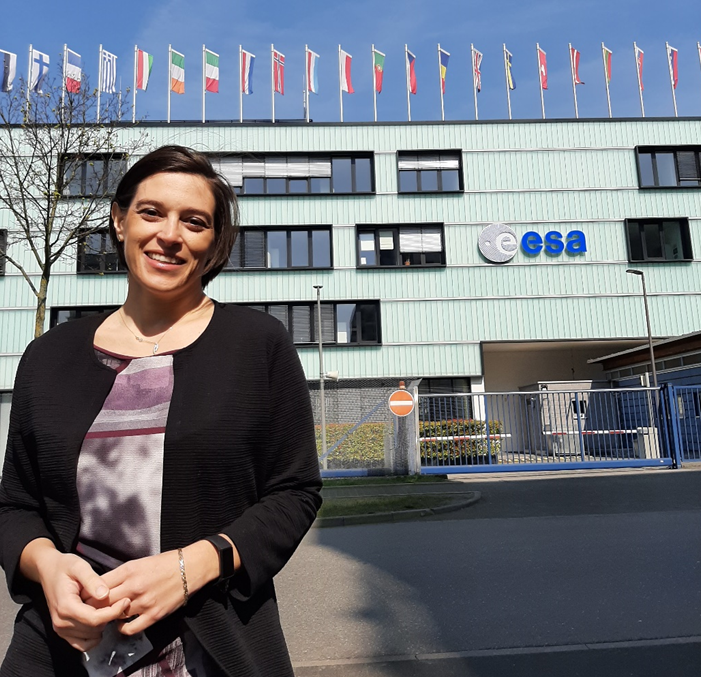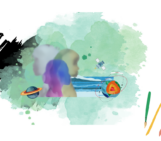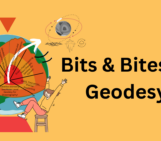
Are you ready to hear from another woman in geodesy? We pass the mic to our Outstanding Early Career Scientist Awardee of 2018, someone who is currently carrying out her scientific works outside of academia. We are not going to take that much of your time and leave the stage to her.
Would you like to share your thoughts about what being a woman in science means to you?
I enjoy being a scientist because it is a thrilling endeavour that never gets boring, and I feel very lucky because I got the chance to follow the path that I chose for myself. I think that my attitude towards science is the same as that of my male colleagues. I would guess that we are all curious to investigate what is still not understood, and eager to contribute to the solutions of today’s challenges at the best of our capacities. Personally, I have never felt discriminated by the scientific community because I am a woman, but the literature is full of decades of peer-reviewed studies on this topic that are certainly more relevant to draw a comprehensive picture rather than my personal and limited experience. Nonetheless, I have the feeling that gender still plays a role in professional development. A career in science is often precarious for quite a long time. It might require hopping from post-doc to post-doc for several years, and/or being ready to start from scratch in a new city/life at the same age when one might want to start his/her own family. In general, among my peers, I found this to be more discouraging and daunting for women than for men. This has absolutely nothing to do with capabilities or proficiency. Most likely, this is just the result of the different social conditioning and expectations that boys and girls still receive growing up.
Was there an influential woman in your life (both inside the family and outside the family) who impacted you in a way to become a scientist?
I grew up surrounded by active, smart women, who were never afraid to take matters into their own hands or to speak their minds. I am extremely grateful for their example and for their unconditional love and encouragement. None of them, nor any of their acquaintances, had a career in science. Yet, it took them no effort at all to support my life choices. I am also very grateful to my PhD co-advisor, Prof. Susanna Zerbini, who mentored me at the beginning of my career.
You’re one of the Outstanding ECS awardees. We would like to hear a bit about your studies and what’s coming next.
My PhD project focused on evaluating the impact of the space tie concept on the realization of the terrestrial reference frame. I particularly enjoyed both the technical aspects of that work, and the possibility to experience first-hand the importance of international cooperation in geodesy. Then for some years, I worked on the use of space- and terrestrial-based geodetic data for environmental monitoring. Finally, in 2020 I started working for a private company, PosiTim UG, as a service provider for the Navigation Support Office at ESA/ESOC. Together with my colleagues, we exploit the use of high precision and innovative space geodetic solutions to support the operational needs of ESA missions and European programs.
So far, geodesy has offered me a very entertaining journey, and it is such a vast and versatile discipline that I can imagine many other women finding an exciting path through it in the future.
Can you give us some names of women in science (dead or alive) who inspire you?
Kristine Larson, Daniela Thaller and Carla Braitenberg
What message do you want to pass on to women and girls who want to pursue a career in science, more specifically in geodesy? Maybe a comment on how we can make science more accessible to young women and girls?
I just hope that girls will realize that they are perfectly equipped for a career in science and could be brilliant at it. There are plenty of examples, especially in geodesy, I would say! However, motivating girls is just half of the job. Social conditioning should be lifted, especially tackling those common behaviours that keep reinforcing gender stereotypes, often without even noticing. This won’t sound particularly original, but as long as we keep complimenting little girls just because they are pretty and tidy (instead of curious and adventurous), or as long as a perfectly qualified female coach is not considered a suitable choice to train the boys’ football team, we are not doing the next generation of female scientists any favour. And obviously, once girls decide to pursue a career in science (or anywhere else, really) they should be met with working conditions that ensure the same salaries and progression paths for all genders, as well as the opportunity to equally share childcare with their partner. Pursuing a career in science is mainly the result of a strong passion and personal motivation. However, young women are not naïve. The fairer a certain working environment is, the more appealing it becomes.

Figure courtesy: Sara Bruni
We thank Sara for her time to answer our questions! Stay tuned for more…



